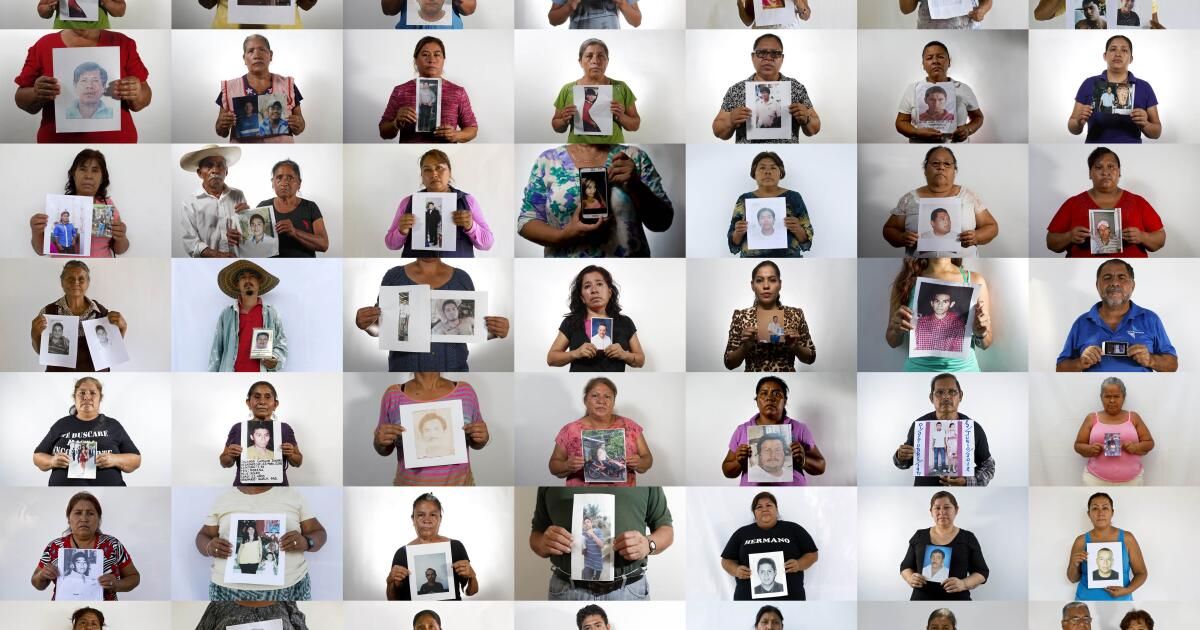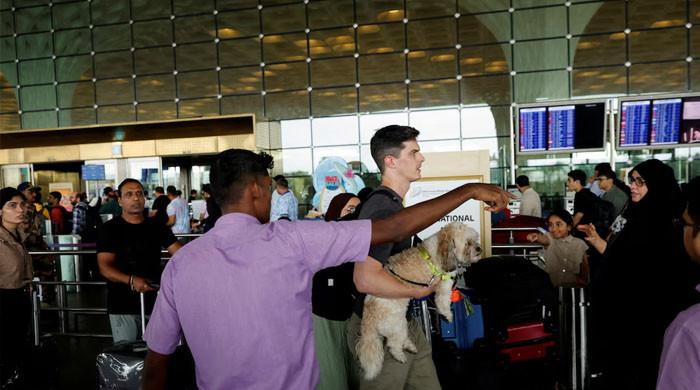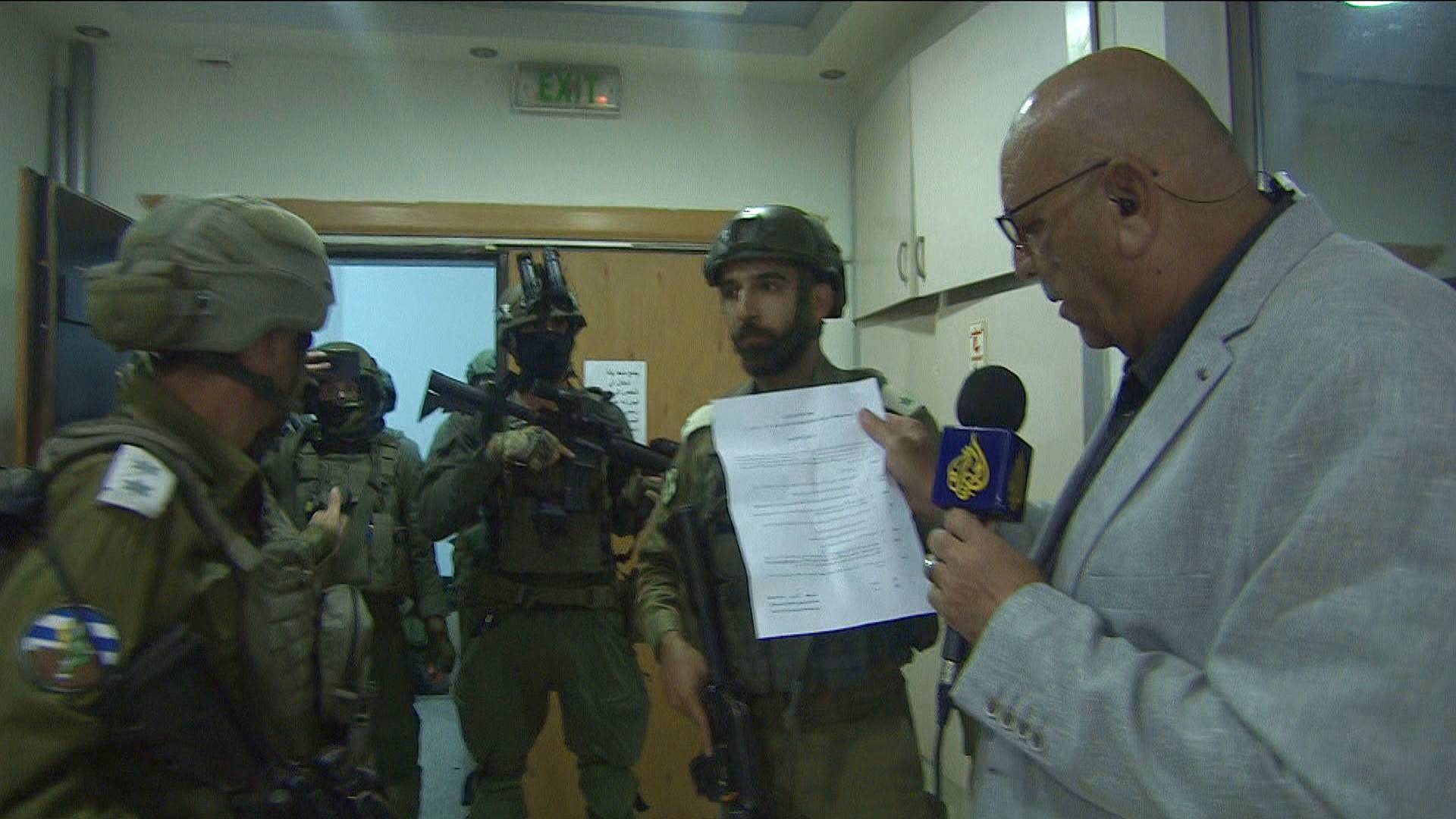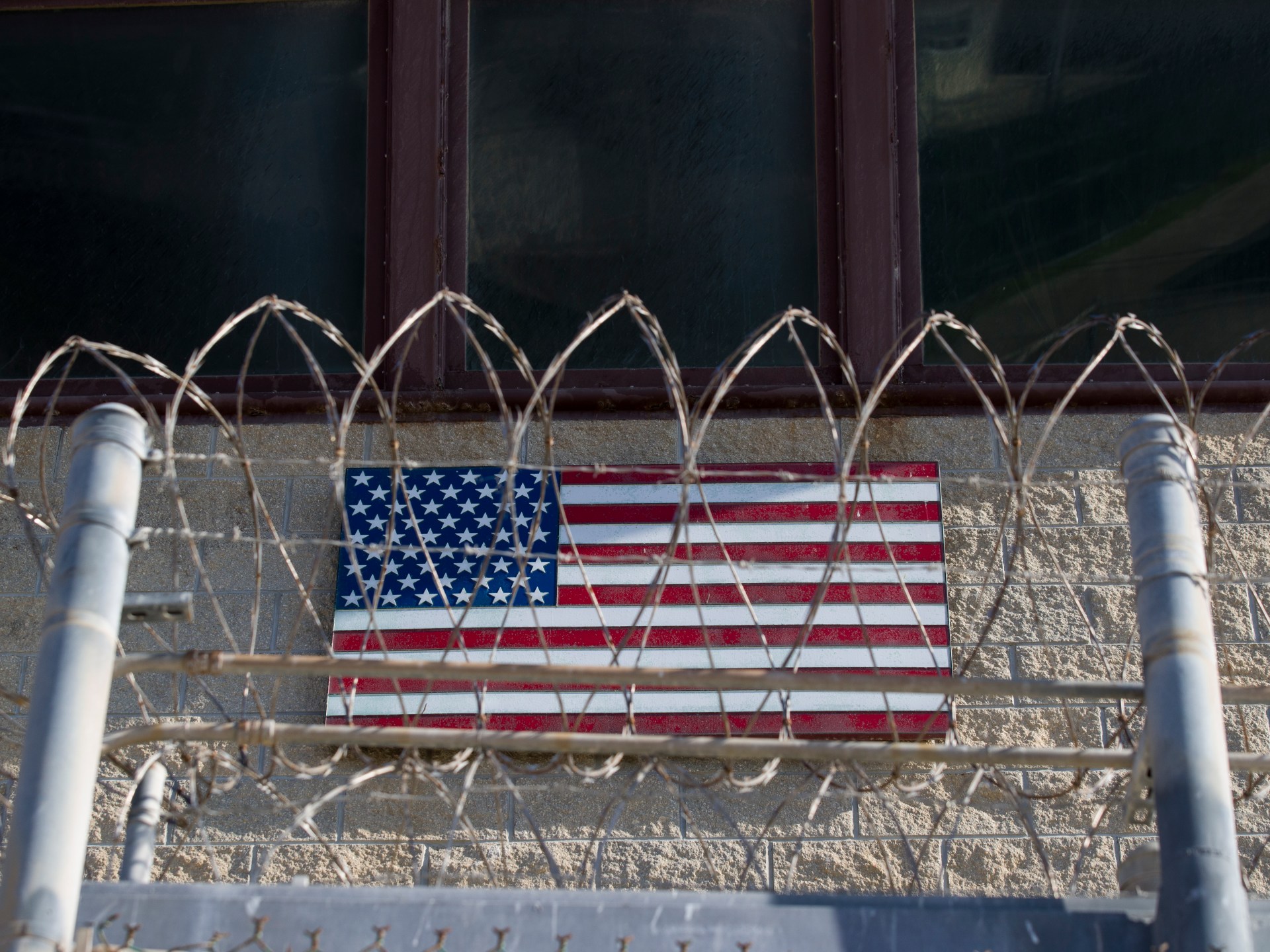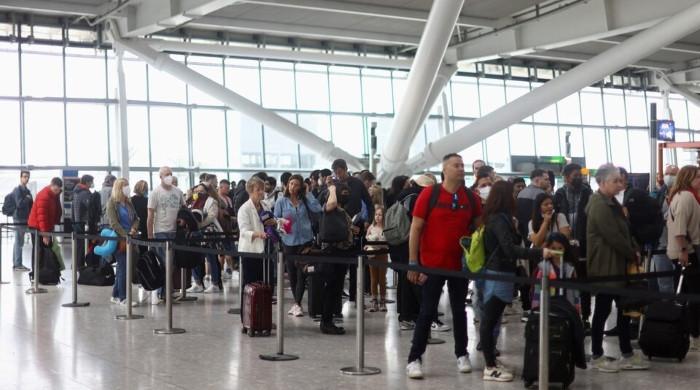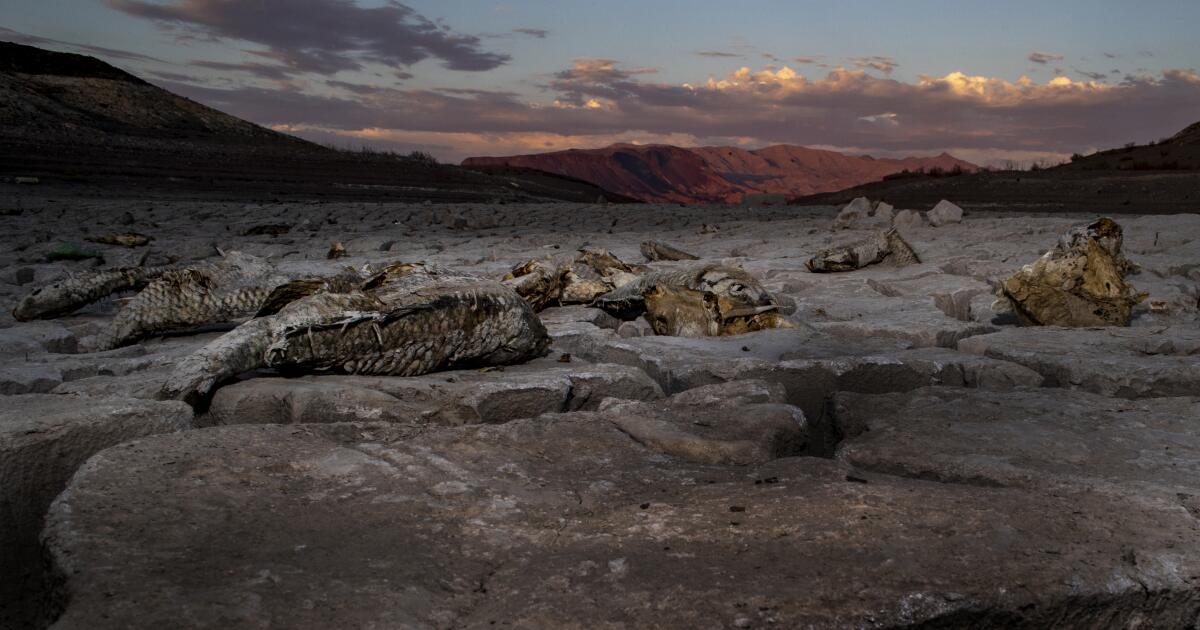In November, Susana García Colorado received a call from a man who claimed to be from the Mexican government commission in charge of finding the more than 100,000 people officially classified as “disappeared.”
“We have information that your brother has appeared,” he told him. “We would like to have an interview with him.”
That was news to her. She consulted with family, friends of her brother, her former co-workers, the police and the hospital where she worked in the port city of Veracruz. No one had seen or heard anything from Osvaldo Julián García Colorado since October 2020.
“It was all a lie. My brother is still missing,” he said. “And everything was the same.”
Except for one thing: His brother's name was removed from the government's online missing persons registry.
The government has been purging what it says are false entries, including duplicate names and cases of people killed or discovered alive in their homes or in jails. But dozens of people who have been removed from the list remain missing, according to their families.
In a country with a glut of clandestine graves and unidentified bodies, the crisis of the missing has become intensely political, with critics of President Andrés Manuel López Obrador accusing him of trying to whitewash his administration's history of violence in the run-up. to the national elections. in June.
President Andrés Manuel López Obrador speaks at the National Palace in Mexico City on January 10, 2023.
(Fernando Llano/Associated Press)
The families accuse the president of “disappearing the disappeared.”
“They are going to close the files and close all the cases,” lamented Virginia Garay Cazares, whose 19-year-old son disappeared in 2018 while on his way to work at a hamburger and hot dog stand in the western city of Tepic. . “They do not understand the pain and anguish of those of us who have missing loved ones.”
López Obrador has denied any plans to manipulate the books or stop searching for the missing.
“There is no intention on our part – there never has been – to erase any of the missing,” he recently told reporters. “What is happening is a general review and search, at the national level, to precisely clarify the number of missing people and organize it.”
Calling his enemies “vultures,” the president has accused his opponents of “infiltrating” the government and inflating the number of missing people in an attempt to smear his administration.
“I understand that there is legitimate discontent among the victims' families,” López Obrador said. “But our adversaries are also upset.”
: :
The term “missing” entered the international lexicon with the infamous Cold War-era violence in Argentina and Chile. But the number of missing people is now much higher in Mexico.
Although hundreds of people disappeared in Mexico during its brutal crackdown on leftist militants during the 1960s and 1970s, the main problem today is organized crime. In 2006, the government declared war on the drug cartels, unleashing a wave of violence that has not stopped.
The most notorious disappearance case involves 43 student teachers from the city of Ayotzinapa, in the western state of Guerrero, whose alleged murders have never been solved. Since they disappeared in 2014, only a few charred remains have been found.
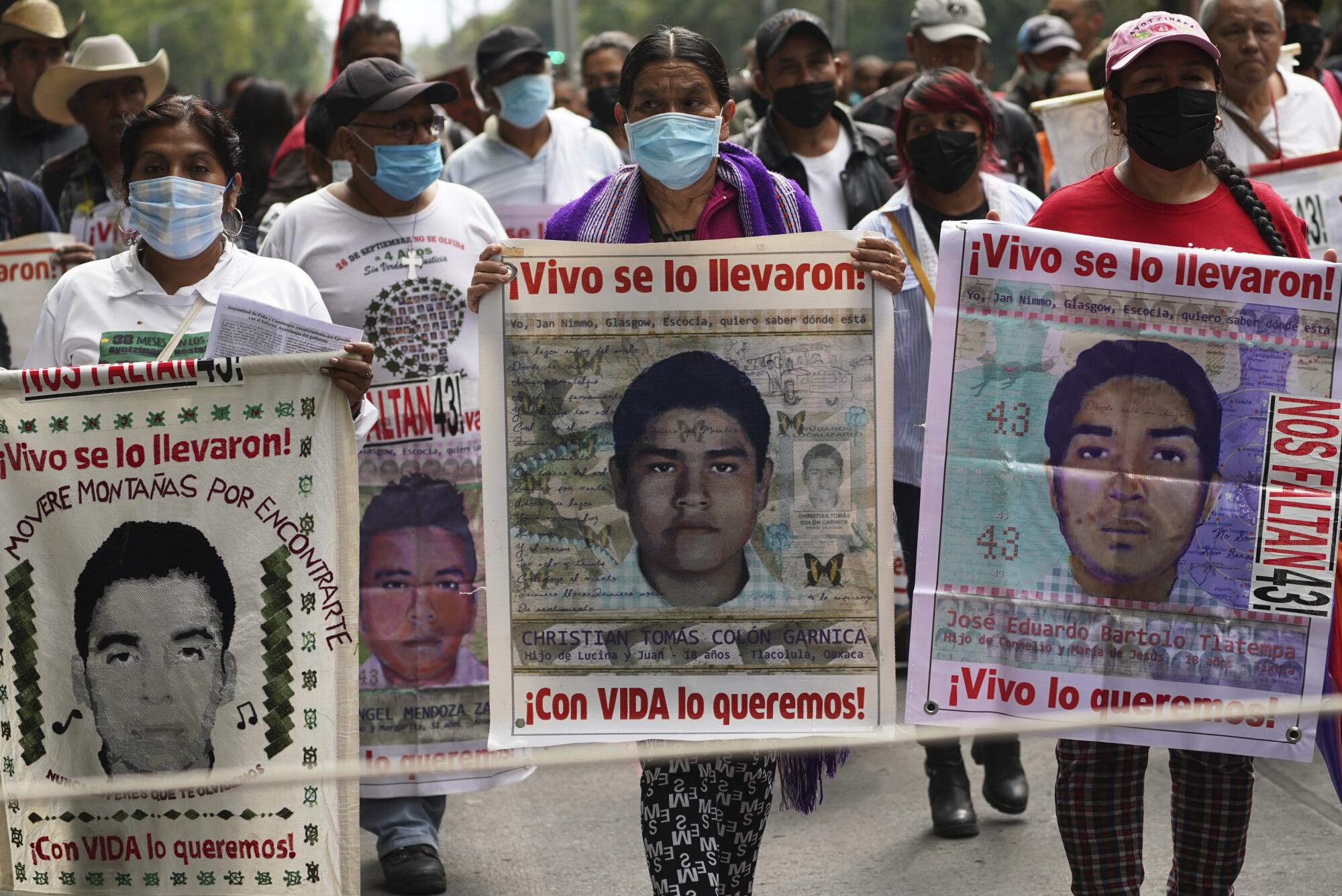
Family and friends march in Mexico City on August 26, 2022. They demand justice for the 43 Ayotzinapa university students who disappeared in 2014.
(Marco Ugarte / Associated Press)
When López Obrador took office in 2018 as a leftist reformer who promised to reduce crime and violence, the official number of missing people was about 53,000. His administration increased funding for the government search commission created to help find them.
But in 2022, the total will exceed 100,000. López Obrador, who often cites “other data” when he questions statistics he doesn't like, began to express doubts about the veracity of the figures. He ordered a new exhaustive census of the missing.
Nearly 5,000 government workers fanned out across the country to knock on doors, examine police and investigative files and review vaccination records, public assistance records and voter lists. Over the next year, they made more than 111,000 home visits and 86,000 phone calls.
In December, the government published the results: of the more than 110,964 people officially classified as missing as of August, only about 11% could be corroborated as missing.
“We have a record in which [sometimes] They only have a name, or a nickname,” Mexico's Interior Secretary, Luisa María Alcalde, told reporters.
About 15% of those on the list were declared “located,” either dead, imprisoned or alive at home.
Officials considered 16% of the missing to be “located,” meaning investigators used databases or used phones to locate them, but did not see them “face to face.”
In 56% of the cases there was too little information to even start a search. The review suggested that some of the missing never actually existed.
About 2% of the missing were listed more than once.
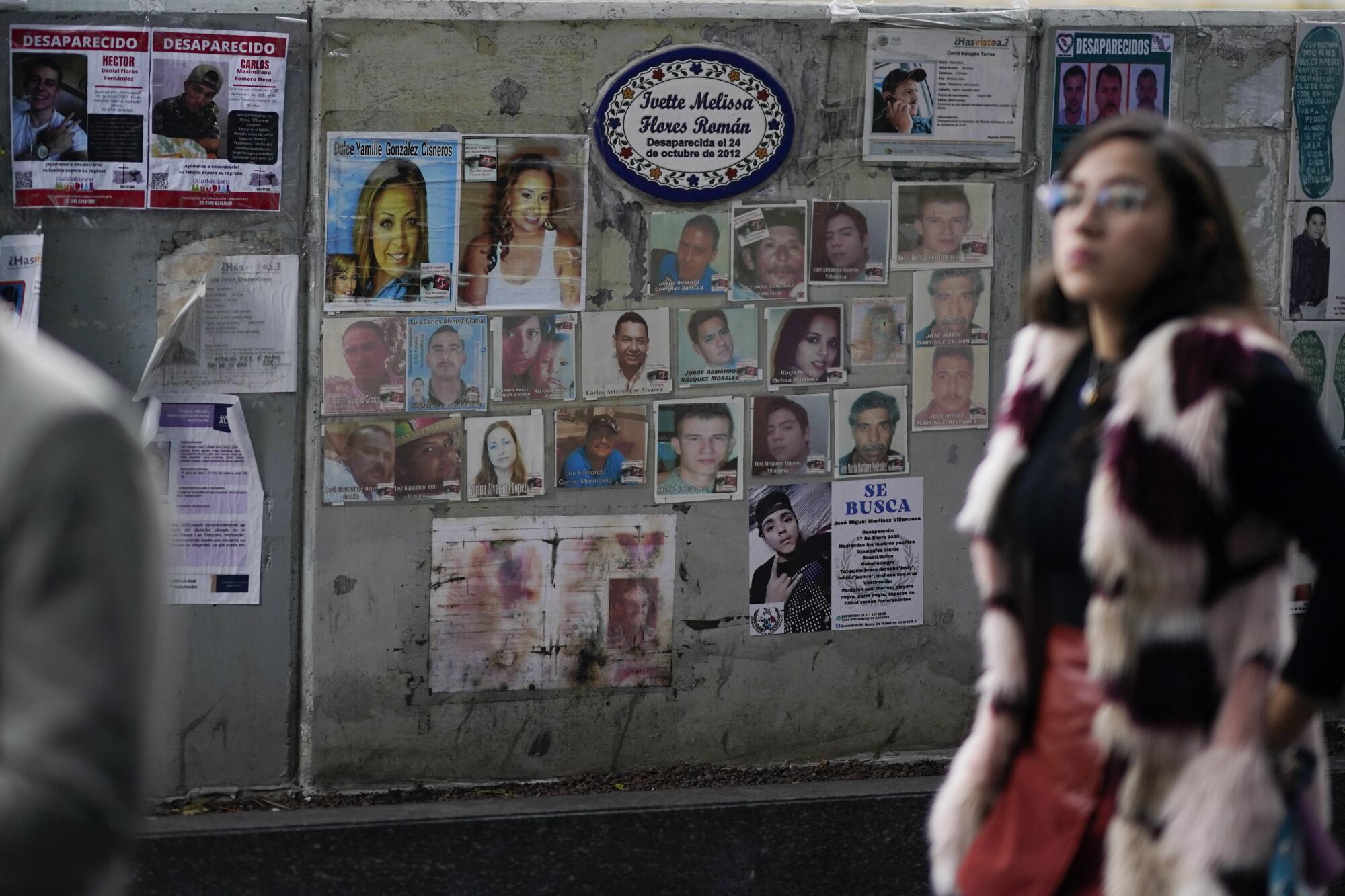
A woman walks past photographs of missing people outside the attorney general's office in Mexico City on December 6, 2023. Mexico announced in December that it had discovered that thousands of people listed as missing had returned to their homes but had not been notified. The authorities.
(Eduardo Verdugo/Associated Press)
No evidence emerged of an internal conspiracy to smear the government, an accusation that López Obrador has continued to push.
“We have not allowed repression, nor massacres, nor the disappearance of anyone,” he told reporters last month, insisting that the official figures were simply “not logical.”
In his final year in office, López Obrador, an avid historian who frequently speaks of his legacy, chafes that his term is portrayed as one of the bloodiest since the Mexican Revolution more than 100 years ago.
Under his leadership, Mexico recorded record numbers of murders as the cartels grew stronger, an uncomfortable development for his Morena party and its presidential candidate, former Mexico City mayor Claudia Sheinbaum, a López Obrador protégé. .
López Obrador's opponents say he has failed to reduce a culture of impunity in a nation where police, the military and prosecutors often collude with organized crime. A forensic crisis has worsened a widespread sense of injustice. Many of the missing are likely among the more than 50,000 unidentified bodies that have been collected since 2006 and are buried in public cemeteries or still stored in morgues.
“The perpetrators are not arrested and the families of the victims end up having to go out alone in search of justice and their missing relatives,” said Tyler Mattiace, Mexico researcher at Human Rights Watch.
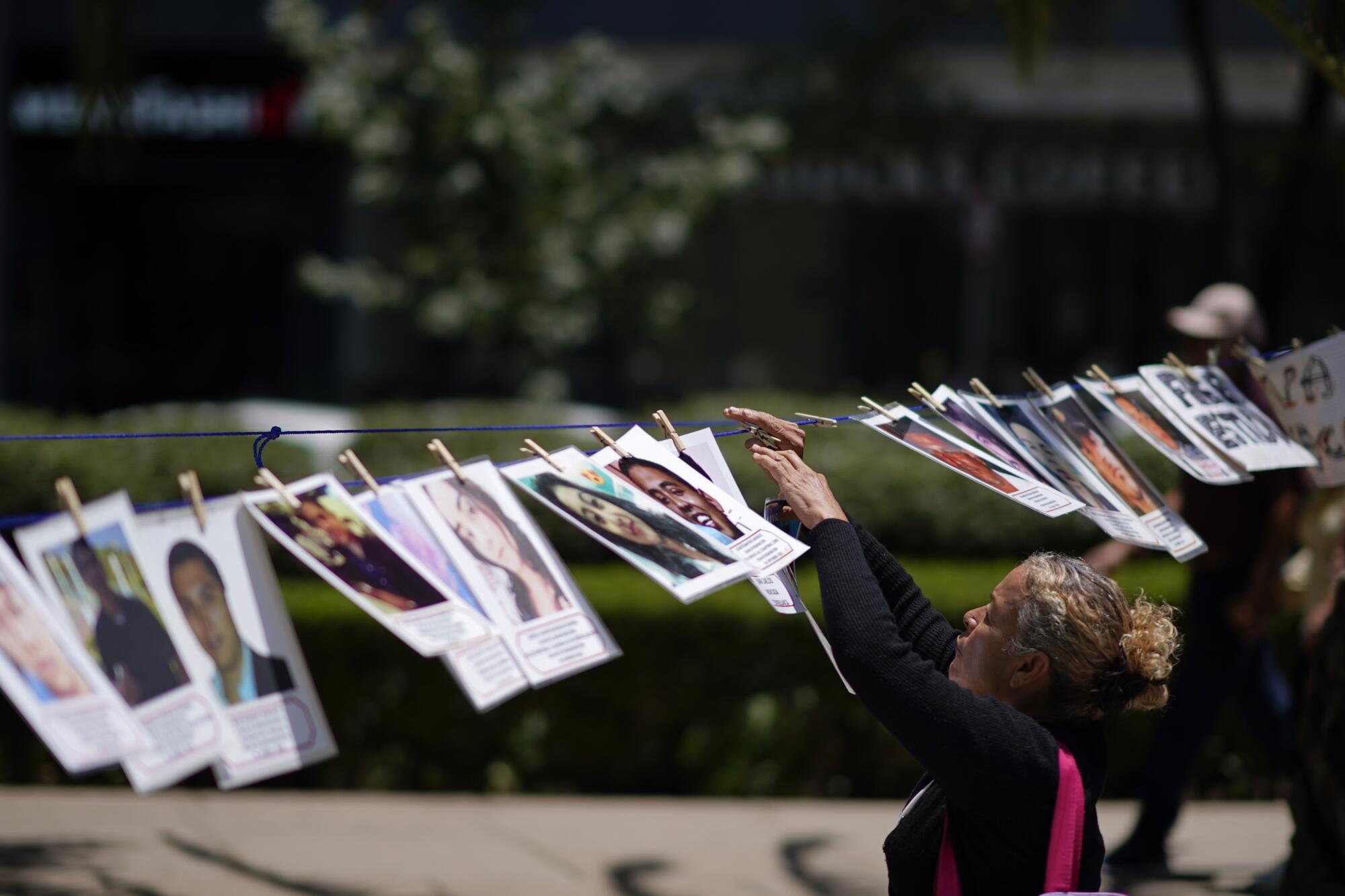
People join an impromptu line of portraits of missing people along Reforma Avenue in Mexico City during a march in August 2023 to demand that the government do more to locate the missing.
(Eduardo Verdugo/Associated Press)
Among the most forceful critics of the president's count is Karla Quintana, a lawyer who headed the missing persons commission before resigning in August.
Explaining his resignation, he told attendees at an academic colloquium three months later that the new census was a farce to make the government look good and suggested that the real number of missing people was significantly higher than 100,000.
“The relatives of the missing say that for every one reported there are up to five families who have not gone to the authorities out of fear,” he said.
The fear is real. An activist shot to death this month in the northern border city of Tecate was the latest of at least a dozen women killed in recent years after searching for their loved ones.
: :
The search for the missing continues. In December, authorities set up a hotline for people to report any leads.
“We are not going to act in a deceptive manner,” López Obrador said. “That is contrary to our principles, our ideals.”
The number of people reported missing has continued to grow, and this week the total listed online was approaching 115,000, but with an important caveat. According to the new classification system, the number verified as “not found” was only about 12,400.
It is unclear how many names of people still missing have been removed by mistake, such as Osvaldo Julián García Colorado. But organizations of relatives of missing people estimate that there could be hundreds.
García Colorado, who would be 41 years old, was a nurse who survived the first months of the COVID-19 pandemic while working at a public hospital in Veracruz, where cartels have long fought over territory.
Police detained him and two friends on October 1, 2020 for reasons that remain unclear, according to his sister, who said she last saw him at the prosecutor's office in the early hours of the next day.
Since then, he has worked with a search collective from Veracruz, one of hundreds that have sprung up across Mexico. Members march in street protests, paste posters with the names and photographs of the missing on walls and dig for bodies in places where loved ones might have been dumped.
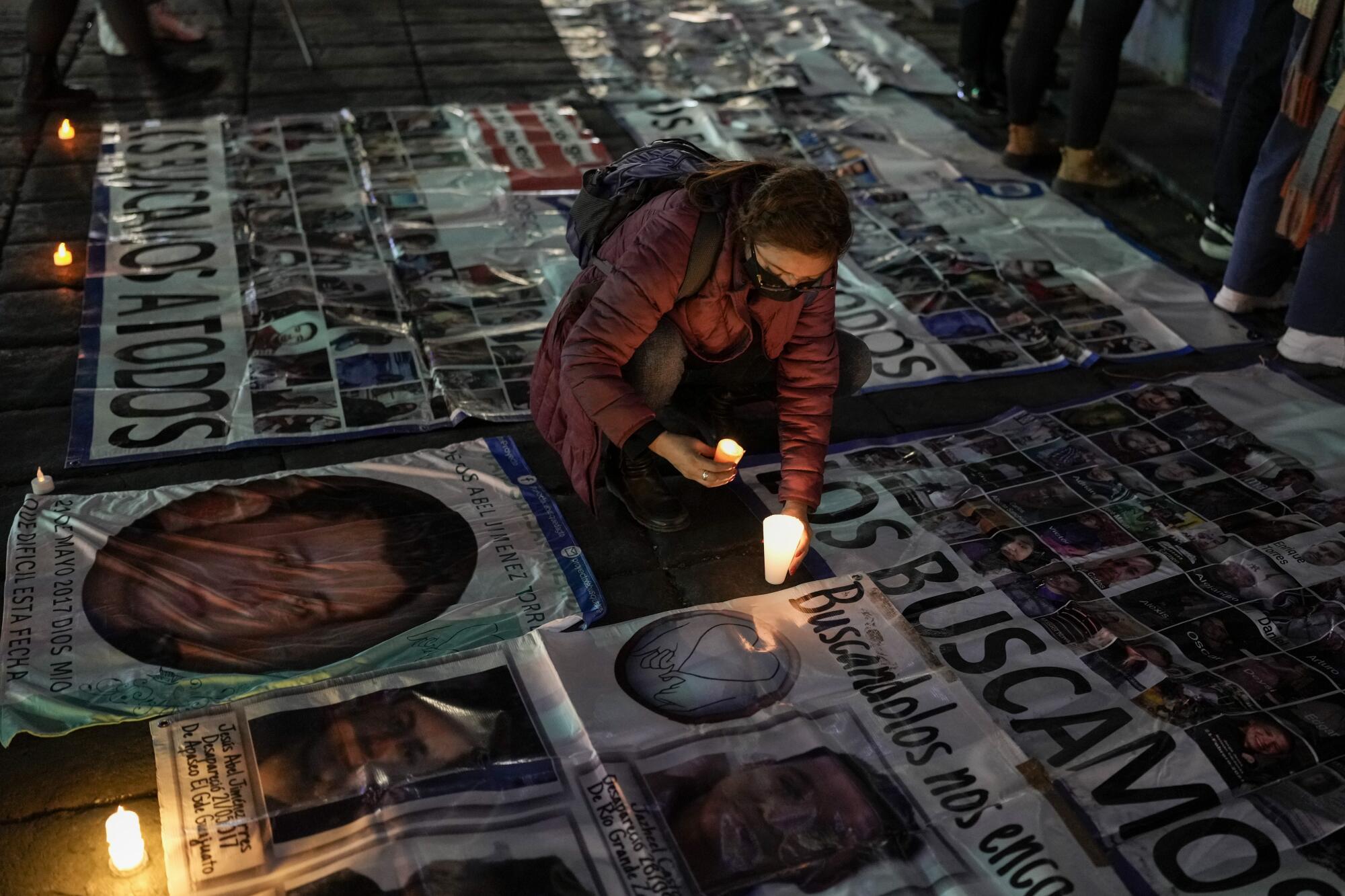
A woman places a candle next to a poster of a missing person during a protest in Mexico City on December 21, 2023. Relatives of missing people called for a vigil over the results of the Mexican government's controversial effort to search for people who, As he says, they are false. listed as missing.
(Eduardo Verdugo/Associated Press)
At the beginning of the ordeal, prosecutors told Susana García Colorado, 45, that there was no record of the arrest of her brother and his two friends, who were also never heard from again.
He has tried to contact the search committee to explain that he is still missing and that his name should be added back to the list. But his messages have not been answered.
“How is it possible that from one day to the next the authorities remove my brother from the registry and don't tell us anything?” she said. “They are making fun of our pain, without respecting our suffering.”
Sánchez Vidal is special correspondent.

